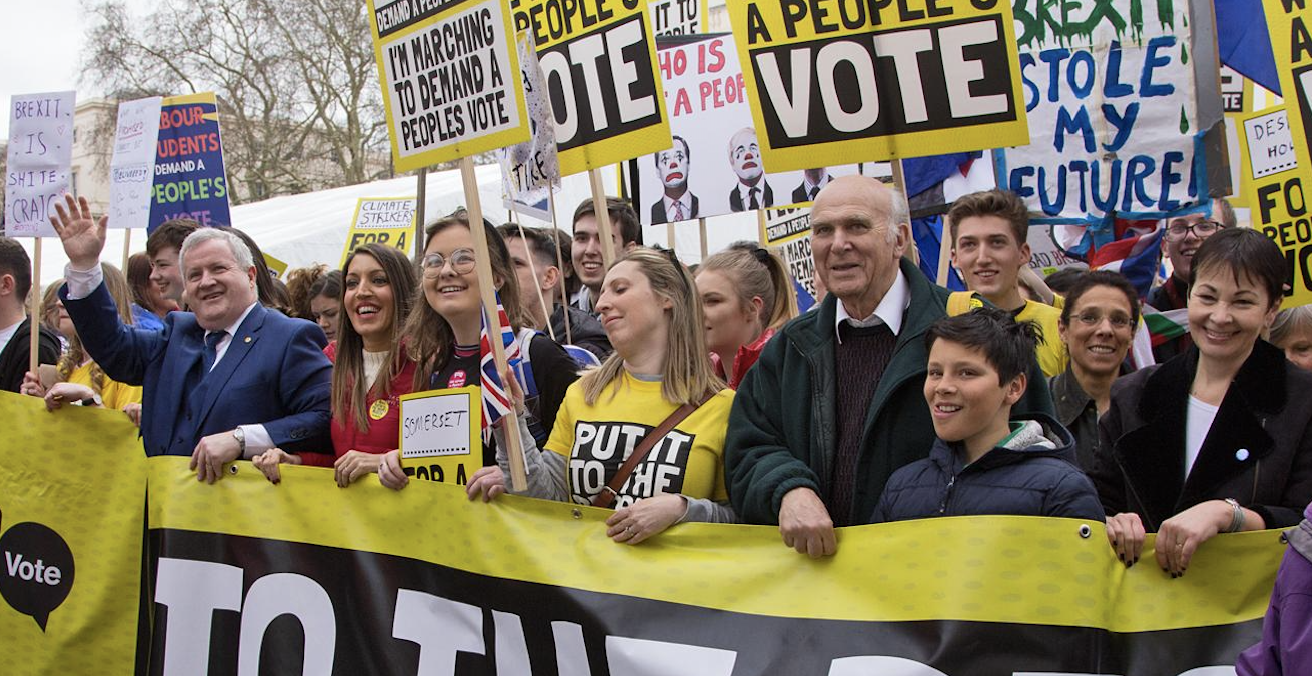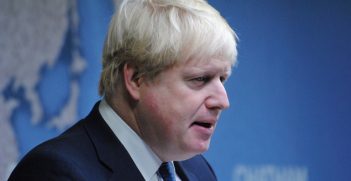Theresa May and Brexit Fatigue

The Brexit deadline has been extended to 12 April and Prime Minister Theresa May has promised to stand down once her withdrawal agreement is passed by the Parliament. But with the UK gripped by Brexit fatigue, it is not even clear if May’s deal will pass.
There is an enormous sense of fatigue with everything related to Brexit. Even as we write this, Brexit continues to be held hostage to the competing interests and power struggles within the Conservative Party and the Parliament. Prime Minister Theresa May has indicated she will step down if the withdrawal agreement is approved by the House of Commons. But this assumes the speaker of the house will even permit it to be brought again to the floor. Currently, May does not have the numbers and the Democratic Union Party (DUP) of Northern Ireland has stated it will not support the agreement. What is certain is that even though the Parliament voted to remove a “no-deal” Brexit from the table, the possibility of the United Kingdom crashing out of the European Union without a deal still remains on the cards. It remains unclear whether May will manage, on her third attempt, to garner sufficient support for her withdrawal agreement to pass through the Parliament. The indicative votes – hailed by many as Parliament taking control of the Brexit process, and which were the focus of parliamentary debate over the last few days – have all been defeated. At this late and crucial stage, the fact remains the UK will leave the EU without a deal if the withdrawal agreement is not approved by Parliament, even with the EU having granted an initial extension to Article 50 from 29 March to 12 April, although it remains open to a longer period.
The last two weeks, then, have been characterised by utter chaos in the UK Parliament with skirmishes among different groups, a series of different – and often contradictory– votes on Brexit and deep discord regarding the manner of leaving the EU.
Last weekend was characterised not only by a steady flow of conservative backbenchers arriving to discuss May’s future at Chequers. It was also marked by two other important events which were arguably much more noteworthy. The first, a march of more than one million people in London in favour of remaining in the EU, marked a groundswell of opposition to the lack of action by the ruling elite. The second event, the release of a petition to “revoke Article 50 and remain in the EU” which has gained more than 5,900,000 signatures, and continues to gain support since its release late last week. The government has since responded, stating “this government will not revoke Article 50” and will stay the course to deliver on the outcome of the 2016 referendum. Crucially, when a petition receives 100,000 signatures, Parliament must undertake to debate it. So, although the government has effectively said the petition will not change its approach, the petition will now be debated in Parliament on Monday 1 April.
The dilemma in the UK has moved beyond the issue of how to leave the EU. It has highlighted deep divisions within the UK. Brexit has deeply divided the country. There are deep fissures within the House of Commons. The Tory party is split and the European Research Group (ERG) continues, with the DUP, to coerce May towards the hardest of Brexit outcomes, although news of her imminent resignation may make the ERG reconsider. Divisions are also evident within the Labour Party. Eleven of its Members of Parliament split from the party in February. Labour’s leader, Jeremy Corbyn, has still not shown himself to be an effective opposition leader or an alternative prime minister who could challenge the rationale or justification of Brexit. He has failed to support popular moves across the country for the UK to remain in the EU, and he was conspicuously absent from the recent marches opposing Brexit.
Yet, this division is not contained to the political landscape. More significant, with long-term implications for the UK’s future, are the deep divisions within British society. Initially, the division was a binary one between whether to leave or remain. This schism has further splintered debate along the lines of what Brexit should look like. The binary nature of the ballot paper on leaving the EU on 23 June 2016 did not provide any options regarding how to leave the EU – or indeed, regarding how to remain. The question simply asked, “Should the United Kingdom remain a member of the European Union or leave the European Union?” There was no mention of issues such as whether the UK’s future relationship with the EU should be in the form of a single market a, customs union or a free trade area.
Prime Minister May famously said “Brexit meant Brexit,” but Brexit means different things to different people. The narratives around what Brexit means quickly became toxic, and references to the will of the people became a mantra that has been used to challenge the remainers’ calls for a second referendum. Groups within the Conservative Party, the DUP and the UKIP’s erstwhile leader, Nigel Farage, have been able to hijack Brexit by emphasising the backstop rather than the potentially deep and damaging implications of Brexit for British society, trade, diplomacy and its international standing. Indeed, the impact of the actual backstop on Northern Ireland has not been examined in a measured way by the government or the Parliament.
Despite the forthcoming parliamentary debate on 1 April, resulting from the petition of nearly six million people to revoke Article 50 and remain in the EU, the question has to be asked whether there is any appetite for further debate on whether the UK should remain in the EU or the manner of its leaving. There is a weighty sense of Brexit fatigue within British society, with many people simply wanting the Parliament to get on with the job of leaving the EU. Many simply would like the government to deliver on the results of the 2016 referendum, whereas others regret that they voted in favour of Brexit without being provided with a full picture of the implications. There is also considerable concern from industry and trade unions, who took the unprecedented step last week of issuing a joint statement, on behalf of the Confederation of British Industries and the Trade Union Congress, in which they stated the UK will face a national emergency with a no-deal Brexit. The statement warned, “firms and communities across the UK are not ready for this outcome. The shock to our economy would be felt by generations to come.”
Regardless of whether there is no deal or whether the withdrawal agreement is passed, any form of Brexit that separates the UK from the single market will be damaging to the economy. Last week, the Bank of England warned of firms putting their investment plans on hold, with serious consequences.
Brexit fatigue is not just about the British people wanting this issue to be resolved. There is mounting frustration that pressing challenges in British society are being ignored – such as the need for adequate funding and support for the National Health Service, schools and infrastructure. In calling on MPs to support the withdrawal agreement a third time, May had referred to this sense of frustration to justify her call for the Parliament to decisively support it. This has so far fallen on deaf ears, although the failure of the indicative votes in Parliament this week have reopened this option, especially with May’s promise to resign as prime minister if it is passed.
This growing sense of Brexit fatigue is not limited to the UK. The EU’s institutions and member states are growing increasingly weary – and wary – of the lack of an outcome on the withdrawal agreement the UK government negotiated with the EU. Prime Minister May’s inability to deliver on the agreement domestically has meant any progress towards a transition period to allow the UK to finally leave has been effectively stalled.
Beyond the EU, the UK will need to demonstrate it is a reliable trading partner, diplomatic actor and security ally. Given the chaos, particularly in the last few weeks, it will need to provide sound reassurances that Britain will be a reliable partner in the future. The reputational costs of Brexit cannot be underestimated.
Even if the withdrawal agreement manages to get through Parliament, the Brexit saga will not come to an end. Rather, it will mark the beginning of a new round of Brexit fatigue, as the British government (likely under a new prime minister) and civil service commence intense negotiations with the EU. It will be required to negotiate a new trade deal with the EU to facilitate market access for its goods and services and the smooth operation of its financial institutions throughout Europe. It will also need to revoke tens of thousands of EU laws and over 700 trade and other agreements, and establishing new trade agreements with countries outside of the EU.
There is so much fatigue but the story continues – a form of Groundhog Day with no escape in sight.
Philomena Murray is a professor and Jean Monnet Chair ad personam in the School of Social and Political Sciences at the University of Melbourne. She tweets at @pbmurray1
Dr Margherita Matera is a lecturer and research coordinator in the School of Social and Political Sciences at the University of Melbourne. She Tweets at @margheritmatera
This article is published under a Creative Commons License and may be republished with attribution.





